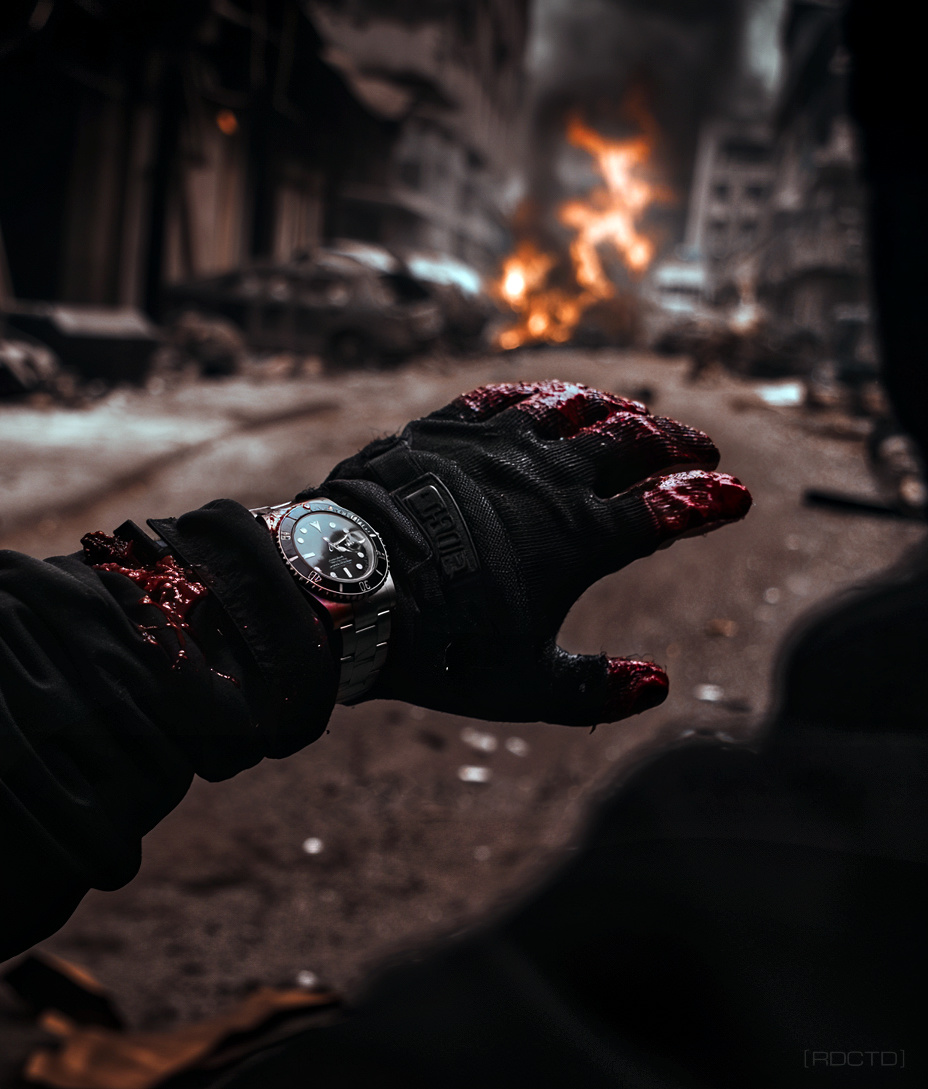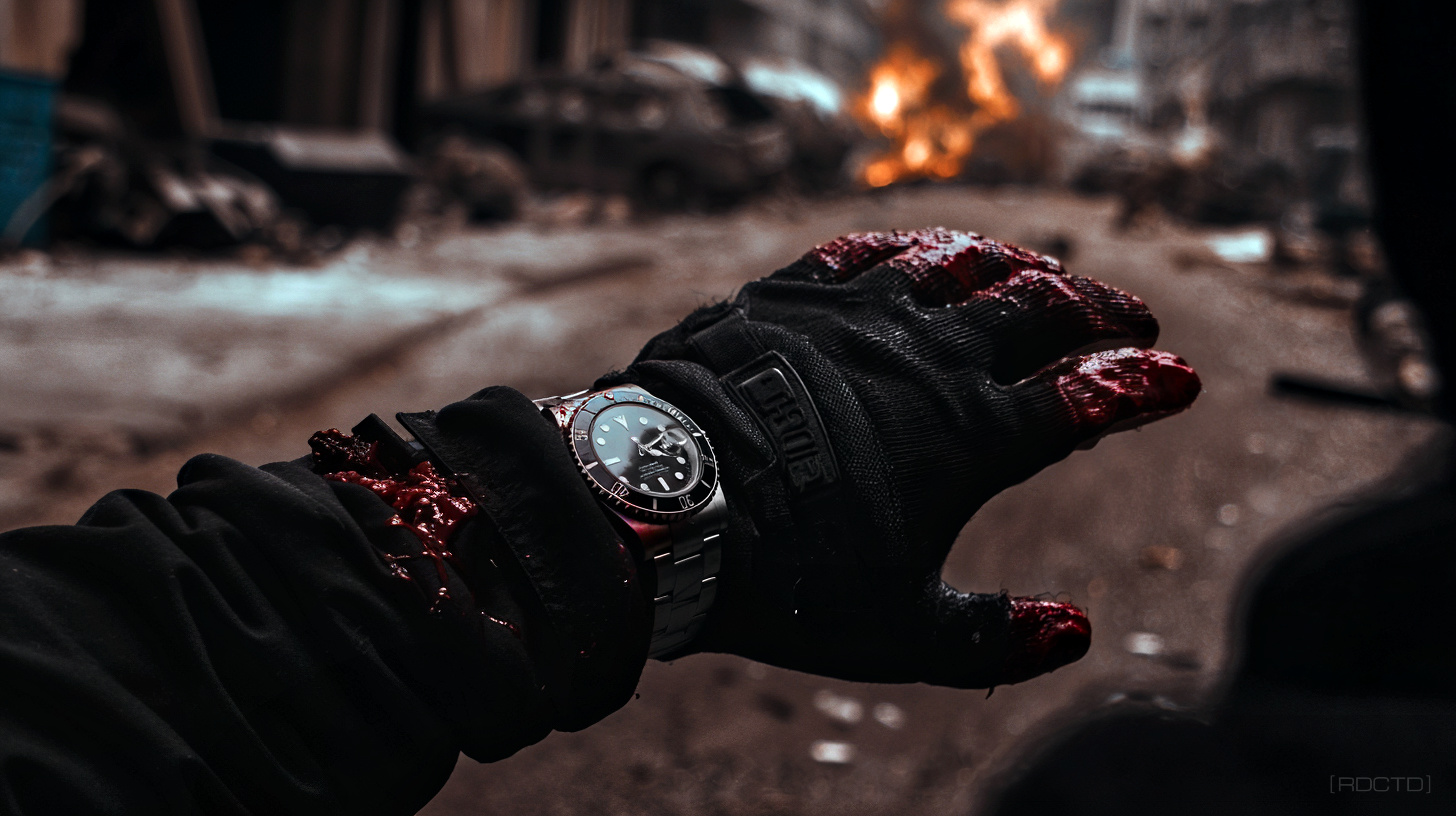 A protocol to regain functional control after a violent shock. The aim is continuity of action – fight on, move, or exfil. Health is secondary, addressed only to the extent it keeps you operational – a forced “reboot”.
A protocol to regain functional control after a violent shock. The aim is continuity of action – fight on, move, or exfil. Health is secondary, addressed only to the extent it keeps you operational – a forced “reboot”. ![]()
Convert adrenaline into action and stay operating when pain and chaos spike. You stabilize your state, protect the functions that matter, and narrow decisions to what advances the objective.
![]()
Rapid Shock Override Process (RSOP) is a compressed sequence to keep a covert operative moving after severe impact (combat, ambush, car crash, etc.) even though it may be hazardous to their health to do so. The objective is forward momentum: fight-through, maneuver, or break contact.
It’s a field routine that buys critical time and preserves initiative when the world just went loud. You’re forcing a reboot on body and brain so you can continue the mission. Think “reset, contain, move.” It’s not medical-first, it’s mission-first. You’ll apply just enough physiology and trauma control to keep operating. It’s modular, fast, and repeatable under fire.
RSOP management is like any other kinetic tradecraft drill – short, sequenced, and rehearsed under time pressure. You’ll 1) blunt the autonomic spike, 2) stop catastrophic loss, 3) reboot motor control, 4) compress cognition, 5) execute controlled movement, 6) reassess while displacing.
![]()
Run vestibulo-ocular reflex drills in training (head yaw/pitch while keeping a fixed gaze mark). It hardens balance and visual stability so blast or impact doesn’t degrade targeting or driving.
![]()
[ I ] AUTONOMIC OVERRIDE
![]()
Step one is to force the nervous system to downshift fast so you can still operate with some level of control. It’s to harden the decision engine you’ll rely on when everything else is degraded. The purpose is to preserve tempo, shorten choice latency, and keep attention aligned with mission outcomes despite shock, noise, and bias. It protects command of self, which preserves command of the fight, the movement, and the exit.
![]()
Immediate Cover or Shielding (If Under Attack)
![]()
Horizon Leveling
![]()
Physiological Sighs (x3)
![]()
Alternate Cadence (4–4–8) (If More Control is Needed)
![]()
Self-Brief: “Name. Task. Time. Route.”
![]()
![]()
You’re buying back fine motor control and decision speed in under 15 seconds. The breathing cuts panic signaling; the horizon check stabilizes balance; the self-brief loads the next move. When RSOP is drilled, this step becomes automatic. Your body settles, your hands obey, and you’re back in the fight or on the wheel without wasting a heartbeat.
![]()
Configure a tactile-only recognition scheme on your kit (knots, tape ridges, zip-pull shapes). You’ll find critical items by feel in blackout, smoke, or when vision is compromised.
![]()
[ II ] CATASTROPHIC LOSS CONTROL
![]()
Step two is a 20-second triage. It’s to stop what will kill you now – exsanguination and airway failure. You’re not doing full TCCC. This is to buy minutes to keep fighting or otherwise operate. Run a fast sweep, clamp the leak, open the airway if it’s collapsing, then get back to the task. Treat this like a weapons malfunction drill – decisive, mechanical, and rehearsed.
![]()
Rapid blood sweep (≤20 seconds)
![]()
Tourniquet For Limb Bleeds
![]()
Junctional Bleed Control
![]()
Airway Quick-Fix
![]()
Torso Wounds (Chest/Abdomen)
![]()
Confirmation and Handoff to Movement
![]()
![]()
This block ends when the red stops and the airway moves air. If you can’t fix it in seconds, you improve the position and try again. RSOP demands tempo – clamp the leak, open the pipe, and go. You’ll revisit and reinforce on the next reassessment loop while you displace.
![]()
Practice verbal shadowing (repeat a neutral phrase quietly while executing). It occupies subvocal loops and suppresses intrusive thoughts during precise work.
![]()
[ III ] SENSORIMOTOR REBOOT
![]()
Step three restores control when shock scrambles fine motor skills. This turns chaos into controllable mechanics. You’ll run a fast neuro check, assume concussion if signs point that way, then execute a 10-second motor reset. Finish by gating pain with breathing so it stops stealing bandwidth. This can be performed while kneeling behind cover or seated in a damaged vehicle.
![]()
Rapid Neuro Check (≤5 Seconds)
![]()
Concussion Presumption and Tactic Shift
![]()
Ten-Second Motor Reset
![]()
Pain Gating and Rhythm
![]()
Equipment Verification While Resetting
![]()
![]()
You should feel tremor drop and control return in under 15 seconds. The reboot won’t cure a concussion, but it restores usable grip, stance, and steering so you can keep operating. Reapply this block whenever you sense drift. It’s a mechanical drill, not a feeling – run it and get back to work.
![]()
Train unilateral manipulations weekly: reloads, light activation, door work, and steering with the non-dominant hand only. It prevents a sudden performance cliff when one limb degrades.
![]()
[ IV ] COGNITIVE COMPRESSION
![]()
Step four sets your brain to one decisive act within 15 seconds. You’ll strip away noise, pick the move that best advances the mission or survival, and commit. Strip options, align to intent, and execute. No brainstorming. It’s a forced-choice drill to break freeze, stop dithering, and regain tempo.
![]()
Objective | One Decisive Act
![]()
Micro-OODA (Run Once, Fast)
![]()
PACE Micro-Plan (Attach to The Decision)
![]()
Timebox | 15 Seconds, Then Move
![]()
Communication | Outcome-Changing Only
![]()
Solo vs. Team Execution
![]()
Cognitive Aids Under Fire
![]()
Errors and Corrections
![]()
![]()
The point isn’t to seek the perfect plan but to select a good plan fast and execute cleanly, now. Cognitive compression under RSOP keeps you aggressive, aligned to intent, and moving. Run it the same way every time so it survives blast, blood, and chaos.
![]()
Stage medical and comms on opposite body quadrants. It preserves a functional hand for either manipulation path if one side loses dexterity.
![]()
[ V ] CONTROLLED MOVEMENT
![]()
Step five decides whether you fight-through or break contact, then executes that choice with decisiveness. Speed is nothing without positional advantage. Favor angles, cover, and preplanned termination points. You’ll check your platform, move in short bursts, breathe on cadence, and scan for secondaries. If friendlies are in play, deconflict before you close distance. Treat movement as a weapon system and run it by the numbers.
![]()
Re-Engage | Angles and Cover
![]()
Break Contact on Foot
![]()
Vehicle Movement – Two-Point Check
![]()
Degraded Driving Techniques
![]()
Secondaries and Environmental Hazards
![]()
Friendly Deconfliction
![]()
Casualty Movement While Displacing
![]()
Signature Control
![]()
Comms and Navigation
![]()
![]()
Controlled movement under RSOP keeps you lethal and hard to hit while you reposition. You’re trading raw speed for survivable tempo and positional advantage. Decide, announce if needed, then move with intent to the next piece of cover or the termination point. If conditions shift, you pivot.
![]()
Use ‘implementation intentions’ pre-mission for emergency scenarios: if X trigger occurs, then I execute Y action. This pre-links perception to behavior and cuts choice latency under shock.
![]()
[ VI ] ROLLING ASSESSMENT
![]()
Step six keeps you alive and moving. You’ll cycle a tight loop every minute or so or at each terrain change. One breath to downshift. Quick checks for bleed and function. Refresh the plan. Only add meds when movement is secure. Clean up your trail. When the scene stabilizes or contact is broken, you step up to full care or handoff. Treat this like a weapons check – fast, consistent, and unemotional.
![]()
Cadence and Triggers
![]()
Autonomic Micro-Reset (1 Breath)
![]()
Hemorrhage and Airway/Respiration Check
![]()
Neuro-Motor Status
![]()
Equipment and Platform
![]()
Plan Refresh (Micro-OODA + PACE)
![]()
Analgesia and Cognition
![]()
Signature and Biohazard Control
![]()
Team Sync and Tracking
![]()
Escalation/Termination Criteria
![]()
![]()
This loop isn’t medicine-first, it’s mission-continuation with just enough care to keep you operational. Run it on the clock until it’s automatic. RSOP treats reassessment as tradecraft – short, repeatable, and disciplined – so you don’t bleed out, lose function, or drift off objective while you move.
![]()
Carry single-use sterile saline ampoules in an outer pocket. A rapid flush clears particulates and blood film from eyes without hunting for a sink or a bottle of water.
![]()
[ FINAL ]
![]()
The Rapid Shock Override Process is a mindset and a discipline, not a medical lecture. It gives you a reliable switch from shock to execution and preserves tempo when things go critical. It aligns attention, strips hesitation, and keeps actions tied to mission outcomes. Rehearse until it’s reflex.
![]()
// Anything can be endured if you have purpose.
[INFO : The Art of Making Moves]
[OPTICS : Undisclosed, Eastern Europe]
![[RDCTD]](https://rdctd.pro/wp-content/uploads/RDCTD-Covert-Operative-Tradecraft-Guide-LOGO-tk.png)
![[RDCTD]](https://rdctd.pro/wp-content/uploads/RDCTD-Covert-Operative-Tradecraft-Guide-LOGO-mobile.png)


